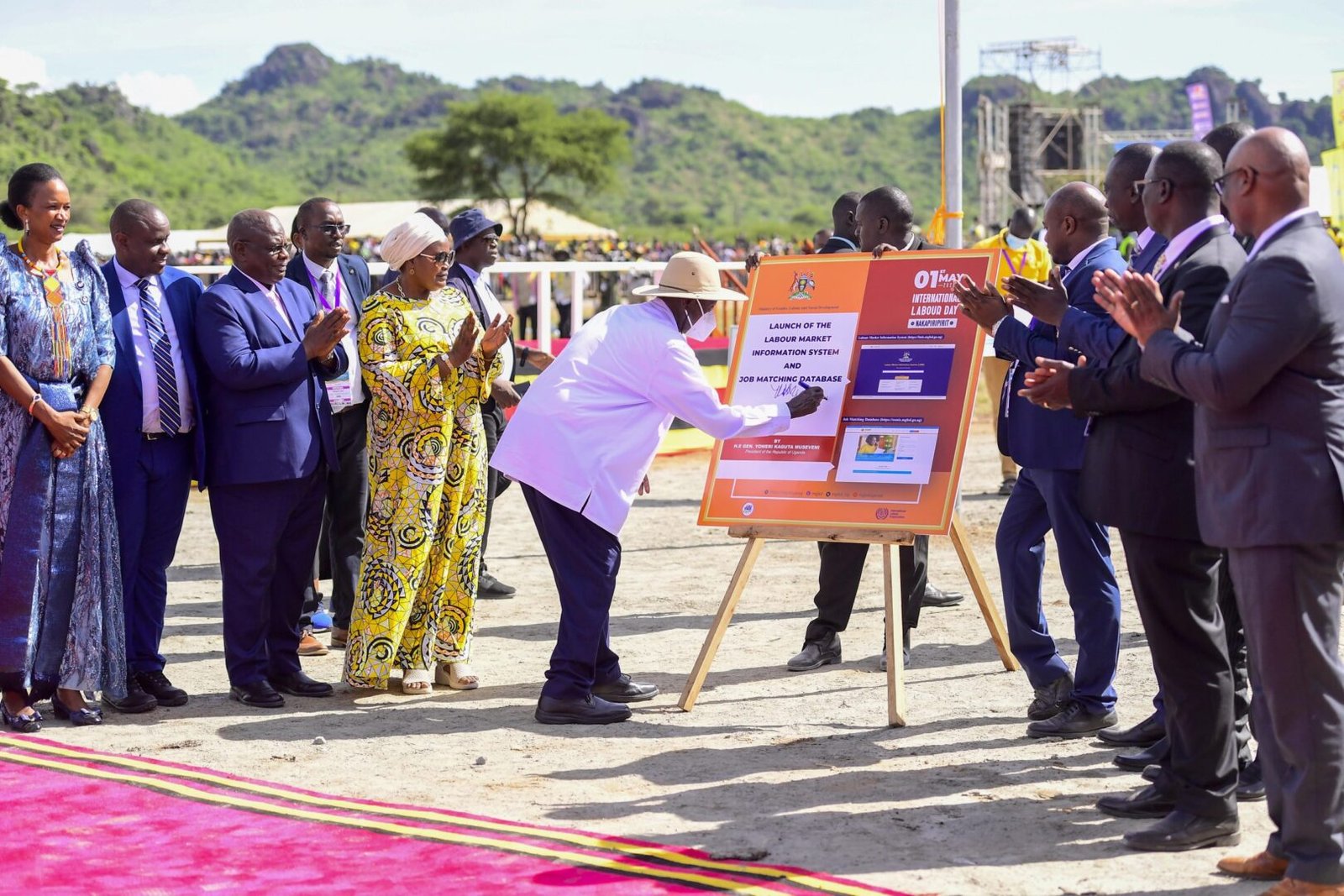NAKAPIRIPIRIT, UGANDA — President Yoweri Museveni has acknowledged the long-standing demands of Ugandan workers for a review and implementation of a fair minimum wage.
Speaking during Labour Day celebrations held in Nakapiripirit District, the President assured the nation’s workforce that the government would take action on this critical issue. However, his address was met with a degree of reservation as he refrained from providing any specific timelines or concrete plans for when these changes might be implemented.
The President’s remarks have reignited the ongoing and often contentious debate surrounding Uganda’s significantly outdated minimum wage.
Currently, the national minimum wage in Uganda stands at a mere 6,000 Ugandan shillings (about $1.60 USD) per month, a figure that has remained unchanged since its establishment in 1984. This amount, equivalent to a minuscule fraction of the present-day cost of living, is widely considered by labour unions, economists, and the general populace to be grossly inadequate to cover even the most basic of human needs.
While President Museveni recognized the need for a review, his lack of a clear roadmap has left many workers and advocacy groups feeling a sense of déjà vu.
The issue of minimum wage reform has been a recurring point of contention in Uganda for years, with numerous promises made but little tangible progress achieved.
It is worth noting that in 2015, the Ugandan Parliament passed a Minimum Wage Bill that aimed to establish a more realistic living wage. However, this legislative effort was ultimately thwarted when President Museveni declined to sign it into law in 2019.
At the time, the President argued that existing legislation was sufficient to address wage concerns, a position that drew considerable criticism from labour organizations and civil society.
During his Labour Day address, President Museveni also touched upon the government’s efforts in job creation and highlighted the Parish Development Model as a key strategy for economic empowerment and employment generation at the grassroots level. However, these assurances did little to quell the immediate concerns surrounding the stagnant minimum wage.
The stark reality of Uganda’s current minimum wage becomes even more apparent when compared to its East African neighbors. While specific figures may fluctuate, countries like Kenya and Tanzania have implemented significantly higher minimum wage levels, reflecting the increased cost of living and the need for workers to earn a sustainable income.
- Kenya’s minimum wage is approximately 15,201 KES (about $117 USD) per month, particularly in urban areas.
- In Tanzania, minimum wage is sector based; lowest-paid categories earn around 100,000 TZS (around $38 USD) per month and the minimum wage for skilled or industrial workers earn up to 400,000 TZS (around $152 USD) while public servants, their salary was recently increased to 500,000 TZS (around $186 USD) per month.
- Rwanda does not have a legally defined minimum wage across all sectors.
- Burundi has a minimum wage of 160 Burundian Francs per day in urban areas.
The disparity underscores the urgent need for Uganda to address this issue to ensure fair compensation and improve the livelihoods of its working population.
Also Read: Nothing to Celebrate: Most Kenyans snub Labour Day fete amid deepening economic hardships
As the Labour Day celebrations concluded, the focus now shifts to whether President Museveni’s latest promise will translate into concrete action.
Labour unions and worker representatives are expected to continue their advocacy efforts, pressing the government for a clear timeline and a meaningful revision of the minimum wage that reflects the economic realities of 2025 and beyond.
The lack of a specific timeframe, however, leaves a significant degree of uncertainty hanging over the hopes of Uganda’s working men and women.

